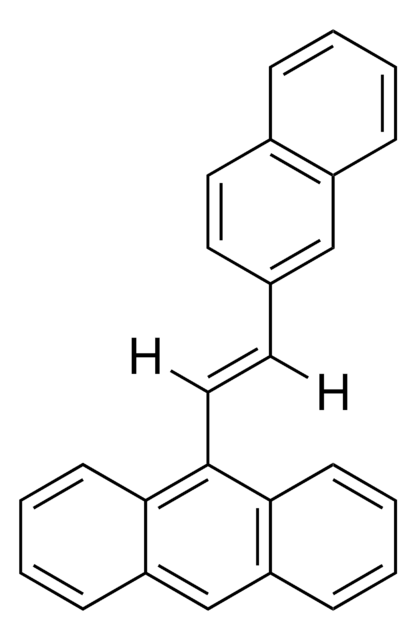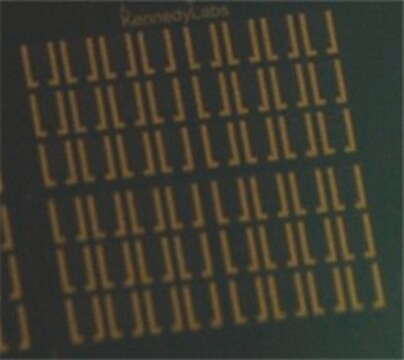S150-05F
Human Skeletal Muscle Cells: HSkMC: Pre-Screened for Insulin & AMPK signaling, fetal
Anmeldenzur Ansicht organisationsspezifischer und vertraglich vereinbarter Preise
Alle Fotos(2)
About This Item
UNSPSC-Code:
12352204
Empfohlene Produkte
Biologische Quelle
human skeletal muscle (normal limb)
Verpackung
pkg of 500,000 cells
Wachstumsmodus
Adherent
Karyotyp
2n = 46
Morphologie
Skeletal muscle
Methode(n)
cell culture | mammalian: suitable
Relevante Krankheit(en)
muscular dystrophy
Versandbedingung
dry ice
Lagertemp.
−196°C
Allgemeine Beschreibung
Lot specific orders are not able to be placed through the web. Contact your local sales rep for more details.
Our pre-screened Human Skeletal Muscle Cells (HSkMC) are isolated from the skeletal muscle of hamstrings and retain morphological, biochemical, and metabolic characteristics of skeletal muscle. Pre-screened HSkMCs can undergo differentiation to exhibit actin and myosin myofilaments and are specially tested for functional AMPK and Insulin Signaling Pathways.
1. AMPK Signaling Pathway
AMP-activated protein kinase (AMPK) is a major cellular regulator of lipid and glucose metabolism and mediates the metabolic changes associated with exercise. AMPK phosphorylates and inhibits activity of acetyl CoA carboxylase (ACC), the enzyme responsible for making malonyl-CoA which is required for fatty acid chain elongation.
2. Insulin Signaling Pathway
Skeletal muscle is one of major target tissue of insulin action. Upon insulin binding, insulin receptor tyrosine kinases catalyze autophosphorylation of tyrosine residues providing docking sites for downstream signaling components, such as IRS-1 and Grb2, which relay the signaling further into the cell (see Fig.B).
Our pre-screened Human Skeletal Muscle Cells (HSkMC) are isolated from the skeletal muscle of hamstrings and retain morphological, biochemical, and metabolic characteristics of skeletal muscle. Pre-screened HSkMCs can undergo differentiation to exhibit actin and myosin myofilaments and are specially tested for functional AMPK and Insulin Signaling Pathways.
1. AMPK Signaling Pathway
AMP-activated protein kinase (AMPK) is a major cellular regulator of lipid and glucose metabolism and mediates the metabolic changes associated with exercise. AMPK phosphorylates and inhibits activity of acetyl CoA carboxylase (ACC), the enzyme responsible for making malonyl-CoA which is required for fatty acid chain elongation.
2. Insulin Signaling Pathway
Skeletal muscle is one of major target tissue of insulin action. Upon insulin binding, insulin receptor tyrosine kinases catalyze autophosphorylation of tyrosine residues providing docking sites for downstream signaling components, such as IRS-1 and Grb2, which relay the signaling further into the cell (see Fig.B).
Ursprung der Zelllinie
Muscle
Anwendung
lipid and glucose metabolism, exercise, insulin action, cell signaling
Komponenten
Basal Medium containing 10% FBS & 10% DMSO
Angaben zur Herstellung
- 2nd passage, >500,000 cells in Basal Medium containing 10% FBS & 10% DMSO
- Can be cultured at least 15 doublings
Subkultur-Routine
Please refer to the HSkMC Culture Protocol.
Lagerklassenschlüssel
11 - Combustible Solids
WGK
WGK 3
Flammpunkt (°F)
Not applicable
Flammpunkt (°C)
Not applicable
Analysenzertifikate (COA)
Suchen Sie nach Analysenzertifikate (COA), indem Sie die Lot-/Chargennummer des Produkts eingeben. Lot- und Chargennummern sind auf dem Produktetikett hinter den Wörtern ‘Lot’ oder ‘Batch’ (Lot oder Charge) zu finden.
Besitzen Sie dieses Produkt bereits?
In der Dokumentenbibliothek finden Sie die Dokumentation zu den Produkten, die Sie kürzlich erworben haben.
Unser Team von Wissenschaftlern verfügt über Erfahrung in allen Forschungsbereichen einschließlich Life Science, Materialwissenschaften, chemischer Synthese, Chromatographie, Analytik und vielen mehr..
Setzen Sie sich mit dem technischen Dienst in Verbindung.







